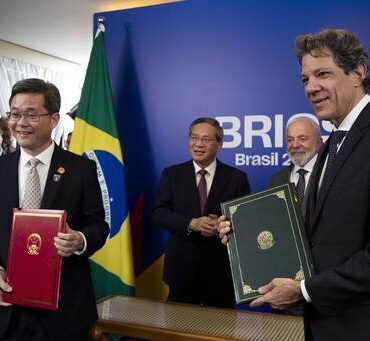Open, transparent bicam

Legislators of all political stripes and from both chambers of Congress coming together to push for a common cause is about as rare as a total solar eclipse. And yet this phenomenon seems to be happening as legislators from the majority and minority parties as well as party-list groups have come out in vocal support of opening the “secret” congressional bicameral conference committee hearings to public access and scrutiny.
The “#OpenBicam” campaign is indeed gaining momentum and the Filipino public must keep up the pressure on the Senate and the House to conduct the bicam deliberations out in the open, especially as the incoming 20th Congress prepares to tackle vital pieces of legislation, including the 2026 national budget, when it begins sessions later this month.
Last June 26, the Development Budget Coordination Committee approved the proposed 2026 national budget of P6.793 trillion, 7.4 percent more than the 2025 budget of P6.326 trillion, and equivalent to 22 percent of the country’s gross domestic product.
The Department of Budget and Management expects to submit to Congress in August the 2026 National Expenditure Program for their approval. After the long and winding budget hearings in both chambers, conflicting provisions in the Senate and House versions of the budget are resolved—like any other piece of legislation—through the bicameral conference committee composed of representatives from both chambers.
‘Third chamber’
The bicameral conference committee is supposed to just harmonize the two versions into one final piece of legislation, the penultimate step in the process before a measure is ultimately signing into law by the president. But over the years, it has come under heavy criticism for going far beyond its purpose to reconcile differences, thus becoming a breeding ground for corruption.
Numerous insertions, deletions, and juggling of the budget line items are allegedly executed during this phase of the process conducted behind closed doors, allegedly to favor pet projects and programs of legislators as well as the executive branch, thus earning the bicam its powerful reputation as the “third chamber” in the two-house legislative system.
Ma. Victoria Raquiza, co-convenor of budget watchdog Social Watch Philippines, said last year that the utter lack of transparency and accountability brought about by the sub rosa bicameral conference committee meetings “has allowed Congress to abuse its ‘Power of the Purse’ for years, creating a breeding ground for corrupt and unfair practices.”
“Shrouded in secrecy, the bicam body has persistently made ‘insertions’ that include massive budget reallocations, ‘double and overlapping’ appropriations, and new budget items,” said Raquiza.
Unprogrammed appropriations
Causing a firestorm last year was the insertion of a provision in the 2024 General Appropriations Act (GAA) that allowed the Department of Finance to have P89.9 billion in subsidies to the Philippine Health Insurance Corp. to be returned to the national treasury to fund unprogrammed appropriations or those that are to be financed at a later time such as through funds from government-owned and controlled corporations. Anti-corruption watchdogs and former government officials condemned the action as unconstitutional before the Supreme Court.
President Marcos has added weight to the campaign by backing calls to open the entire lawmaking process to the public. He himself had noted the changes that the bicam introduced in the 2025 GAA, leading to the reduction in some items and outright veto of others.
To recall, the 2025 GAA was originally set at P6.352 trillion but was trimmed to P6.326 trillion after Mr. Marcos vetoed P194 billion worth of line items deemed inconsistent with his administration’s priority programs. Critics had blamed the insertions on the bicam.
“It is better if everything is transparent to the public when it comes to any transactions being undertaken by the government,” Malacañang Press Undersecretary Claire Castro said.
Committed to transparency
Speaker Ferdinand Martin Romualdez likewise expressed support for the “OpenBicam” campaign, saying he has no problem allowing the public to see what transpires during the deliberations of the bicam. “Intervene, listen, watch. We invite every citizen to witness how their budget is being crafted—live and unfiltered. This is your money. This is your future,” said Romualdez, who is widely expected to keep his post as Speaker.
The Senate, according to Senate Secretary Renato Bantug Jr., is similarly committed to transparency in the national budget process. Tingog party list Rep. Jude Acidre said other legislators were “united” with those proposing a more open bicam.
With increasing support for the measure, all that is left is for the incoming 20th Congress to translate those sweet words into action by institutionalizing the open bicam deliberations in the House and Senate rules. Failure to open all doors to public participation will mean that these pronouncements will be mere “empty talk” and “photo opportunity.”





















